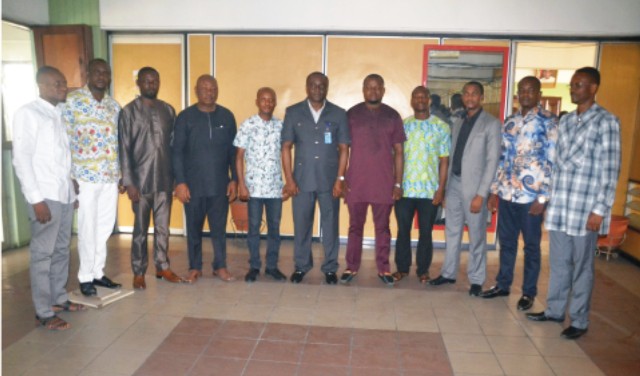Niger Delta
Nsirim Urges Muslims To Put Rivers Interest First

The Permanent Secretary, Rivers State Ministry of Information and Communications, Pastor Paulinus Nsirim, has charged the Muslim Community in the State to put the interest of the state above other interest.
Nsirim, who said this during the “OurStateOur Responsibility” advocacy visit to the Rivers State Islamic Council Secretariat in Port Harcourt, also commended Muslims in the State for their harmonious coexistence with their neighbours in the state.
He said Rivers State is blessed with a leadership that has not only promoted religious harmony, but also providing both human and infrastructural development.
According to him, the Governor is not only providing infrastructural projects across the state, but also promoting education and health care programmes through the payment of fees for candidates sitting for the Joint Admission and Matriculation Board (JAMB), the National Examination Council (NECO), examinations while treatments for HIV/AIDS patients are also free.
The Permanent Secretary expressed regrets that despite the huge achievements of Governor Nyesom Wike in all facets of human development, some people are busy de-marketing the state.
He said time has come for the Muslim Community and others living and doing business in the State to join the campaign to change the negative perception about the state.
“We need to tell our story that the state is hospitable”, he said, and described the Muslim community as a critical stakeholder in the Rivers State project.
Nsirim also called on them to avail themselves of the on-going immunization programme in the state to immunize their children.
Meanwhile, the Muslim community in Rivers State has endorsed the “Our State Our Responsibility” advocacy campaign.
The Muslim leader in the State and Vice President General of Nigerian Council for Islamic Affairs, Alhaji Nasir Awhelebe Uhor, said it is the responsibility of Muslims to support government policies and programmes.
Alhaji Uhor, who said nobody can use the name of Islam to foment trouble in Rivers State, thanked Governor Wike for ensuring the establishment of a gas plant in the State.
Niger Delta
Stakeholders In Delta Seek Stronger GBV Action, Women’s Leadership

Niger Delta
C’River Suspends Taskforce Activities Over Drivers’ Protest

Niger Delta
A’Ibom Assembly Urges More Private Investments In Agriculture

-

 News5 days ago
News5 days agoDisu Takes Over As New IGP …Declares Total War On Corruption, Impunity
-
Politics2 days ago
2027: NIGERIANS FAULT INEC ON DIGITAL MEMBERSHIP REGISTER DIRECTIVE
-

 Environment2 days ago
Environment2 days agoLAWMA Director Says Sweeping Reforms Have Improved Waste Collection
-
Politics2 days ago
LP Crisis: Ex-NWC Member Dumps Dumps Abure Faction
-

 Sports2 days ago
Sports2 days agoAbia Not Sure To Secure continental Ticket
-

 Politics2 days ago
Politics2 days agoUmahi Dismisses Allegations On Social Media, Insists On Projects Delivery
-

 Transport2 days ago
Transport2 days agoFAAN Announces Pick-Up Points for Go-Cashless Cards
-
Sports2 days ago
La Liga: Yamal Records First Career Hat-trick

